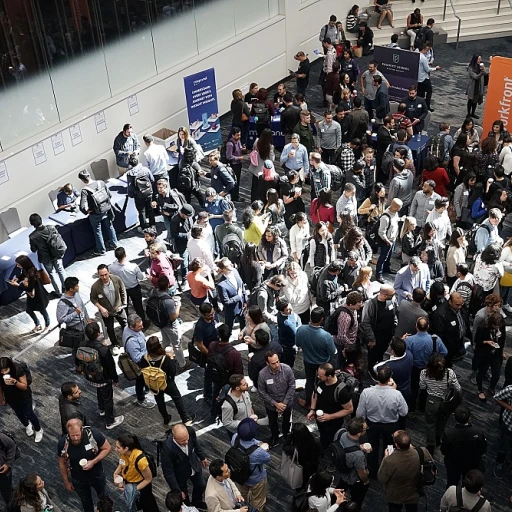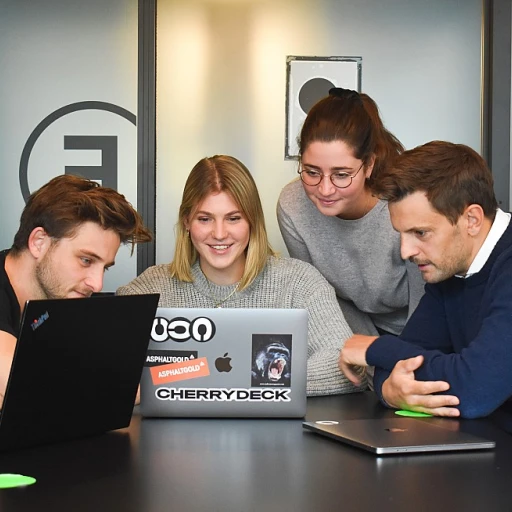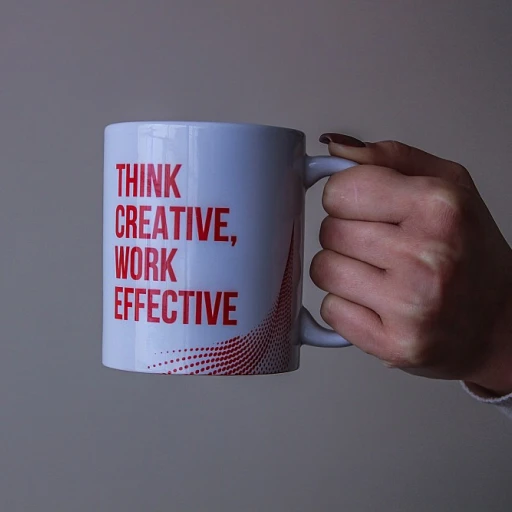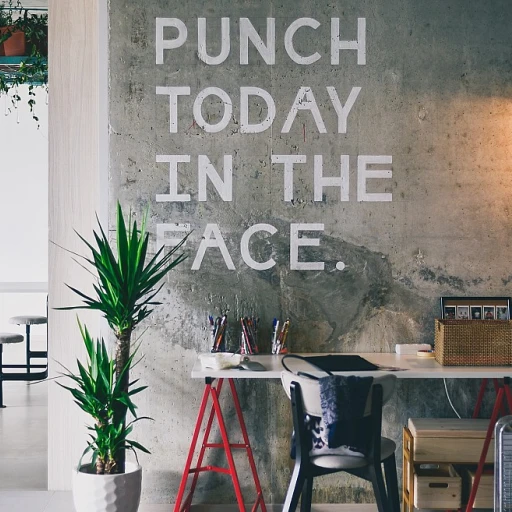
Understanding the Importance of Pre-Hire Solutions
The Significance of Proactive Recruitment
In the fast-paced world of retail and hospitality, understanding the significance of proactive recruitment is crucial. These industries are renowned for their high employee turnover and seasonal demand, making it essential for businesses to implement robust pre-hire strategies. Effective pre-hire solutions can streamline the recruitment and staffing process, allowing companies to secure top talent and maintain an efficient workforce.
By optimizing the pre-hire phase, businesses can enhance the overall candidate experience. A well-managed recruitment process not only improves candidate retention but also strengthens the employer brand. With an emphasis on proactive hiring, retail and hospitality sectors can better anticipate staffing needs and minimize disruptions caused by sudden vacancies.
Investing in pre-hire strategies also ensures better alignment between candidates and roles, reducing the time to hire and enhancing long-term employee satisfaction. This approach is essential in an industry where a strong service brand is built on consistent and reliable customer interaction. A clear understanding of the importance of pre-hire solutions sets the stage for successful talent acquisition in retail and hospitality.
For those looking to refine their pre-hire approach, exploring the perfect onboarding email template can be a valuable resource to enhance communication with potential hires.
Identifying Key Challenges in Retail and Hospitality Hiring
Common Obstacles in Securing the Right Talent
The retail and hospitality sectors face unique challenges in their recruitment process. As businesses navigate the complexities of staffing solutions, they often encounter obstacles that can hinder their ability to secure top talent. One significant challenge is the high turnover rates prevalent in the hospitality industry. This creates a constant need for recruiting, as businesses must continuously fill vacancies.Understanding Industry Specific Roles and Requirements
Retail and hospitality roles demand specific skills that are not always easy to come by. Hiring managers often seek candidates who not only have the technical skills required for their positions but also possess the soft skills that enhance the customer service experience. The need to balance these requirements can complicate the recruitment process.Managing Employer Brand and Candidate Experience
The competitive nature of these industries means that candidates often have multiple options. Building a strong employer brand is essential in attracting candidates. A positive candidate experience can set apart one company from another, impacting a candidate's decision to accept an offer.Optimizing the Time-to-Hire While Preserving Quality
The speed of the hiring process is crucial. An extended time-to-hire can lead a business to lose out on valuable talent to competitors. However, there's a delicate balance between a swift hiring process and ensuring candidates are thoroughly assessed. Implementing effective pre-hire solutions can streamline this process, helping to quickly identify individuals who can fulfill the demands of the roles.Adapting to Technological Advancements
Finally, retail hospitality industries must stay abreast of technological advancements that can aid in recruitment. Applicant tracking systems, video interviews, and other tech-driven tools can enhance recruitment efficiency. As businesses adapt, they can improve their talent acquisition strategies and align them with these innovative solutions. For further insights into maintaining communication as part of pre-hire strategies, read more on the significance of pre-boarding communication.Effective Pre-Hire Assessment Tools
Unlocking the Potential of Pre-Hire Assessment Tools
In the retail and hospitality sector, where the workforce is the backbone of the service delivery, identifying the right fit for various roles is critical. The hiring process demands precision, especially when aiming to enhance the employer brand and candidate experience. This is where pre-hire assessment tools come into play. These tools are designed to evaluate candidates' skills, competencies, and cultural fit before final decisions. By utilizing a combination of these tools, businesses can harness the early stages of talent acquisition itself, optimizing staffing solutions for the long term. Let's delve into some effective assessment solutions enhancing recruitment processes in these industries.- Behavioral Assessments: They help in identifying candidates whose personality traits
- Skill-Based Tests: These tests focus on specific competencies required for the
- Cognitive Ability Tests: Assessing problem-solving and decision-making capabilities
- Video Interviews: An innovative solution in recruitment, they provide hiring managers
Training and Development as a Pre-Hire Strategy
Integrating Training and Development into Pre-Hire Strategies
In the competitive landscape of retail and hospitality, integrating training and development into pre-hire strategies is not just beneficial—it's essential. The hospitality industry, known for its dynamic roles and high turnover rates, demands a proactive approach to recruitment and staffing solutions. By focusing on training and development before the official hiring process begins, businesses can enhance their employer brand and attract top talent.
Training as a pre-hire strategy serves multiple purposes. It not only prepares candidates for the specific demands of the roles they are applying for but also aligns them with the service standards and brand values of the business. This alignment is crucial in industries where customer experience is paramount. Moreover, providing training opportunities early in the recruitment process can significantly improve the candidate experience, making the business more attractive to potential hires.
Benefits of Pre-Hire Training and Development
- Enhanced Candidate Experience: Offering training sessions or workshops before hiring can make candidates feel valued and invested in, improving their overall experience.
- Improved Employer Branding: Businesses that prioritize development are often seen as more desirable employers, enhancing their brand in the eyes of potential recruits.
- Reduced Time to Hire: Candidates who are already familiar with the business's operations and expectations can transition more smoothly into their roles, reducing the time needed for onboarding.
- Long-Term Talent Acquisition: By investing in candidates early, businesses can foster loyalty and reduce turnover, securing a more stable workforce in the long term.
For hiring managers, integrating training and development into the pre-hire process is a strategic move that can streamline the recruitment process and ensure that new hires are well-prepared to contribute effectively from day one. This approach not only benefits the business but also enhances the overall staffing solutions within the retail hospitality sectors.
Leveraging Technology in Pre-Hire Processes
Embracing Technological Advancements in Recruitment
In the fast-paced world of retail and hospitality, leveraging technology in the pre-hire process is not just an option; it's a necessity. The integration of advanced tools can significantly enhance the efficiency and effectiveness of recruitment, ensuring that businesses attract top talent while maintaining a strong employer brand.
Applicant Tracking Systems: Streamlining the Hiring Process
Applicant Tracking Systems (ATS) have become a cornerstone in modern recruitment strategies. These systems help manage the entire hiring process, from receiving applications to onboarding new hires. By automating repetitive tasks, ATS allows hiring managers to focus on more strategic aspects of recruitment, such as engaging with candidates and refining the employer brand. This efficiency is crucial in the hospitality industry, where time-to-hire can impact service quality and business operations.
Video Interviews: Enhancing Candidate Experience
Video interviews have revolutionized the way businesses conduct interviews, offering a flexible and efficient solution for both candidates and employers. This technology not only saves time but also broadens the talent pool by allowing candidates from different geographical locations to participate in the recruitment process. In the hospitality sectors, where staffing solutions need to be swift and effective, video interviews provide a seamless experience that aligns with the fast-paced nature of the industry.
Data-Driven Recruitment: Making Informed Decisions
Data analytics plays a pivotal role in refining recruitment strategies. By analyzing data from previous hiring processes, businesses can identify patterns and trends that inform future recruitment decisions. This data-driven approach helps in predicting candidate success and improving the overall candidate experience. In retail hospitality, where roles can vary greatly, having insights into what makes a successful hire can significantly enhance staffing solutions.
Building a Tech-Savvy Recruitment Team
To fully leverage technology in the pre-hire process, it's essential to have a recruitment team that is proficient in using these tools. Training and development, as discussed earlier, are crucial in ensuring that the team can effectively utilize technology to attract and retain top talent. This not only improves the recruitment process but also strengthens the long-term employer branding of the business.
Measuring the Success of Pre-Hire Solutions
Evaluating Pre-Hire Strategies for Optimal Results
Measuring the success of pre-hire solutions in the retail and hospitality sectors can significantly influence a business's ability to attract, recruit, and retain top talent. Understanding how to gauge the effectiveness of these strategies contributes to continuous improvement and innovation in the recruitment process. Developing a metric-focused approach towards evaluating pre-hire strategies is crucial. Key performance indicators need to be clearly defined and should reflect the objectives of the hiring process, such as reducing time to hire, enhancing candidate experience, improving the quality of hires, and strengthening the employer brand.- Time to Hire: Monitoring the time it takes to move candidates through the recruitment pipeline is essential. A streamlined process can help bring in new hires more quickly, significantly impacting staffing solutions in fast-paced environments like retail and hospitality.
- Candidate Experience: Surveys and feedback mechanisms can provide insights into the candidate journey. In an industry where customer service is paramount, positive candidate experience during hiring is critical for employer branding and future recruitment.
- Quality of Hire: This metric evaluates the value new employees bring to the business over time. It includes assessing the new candidate's performance, retention rate, and cultural fit within the team—vital elements in both retail hospitality and the broader hospitality industry.
- Use of Technology: Leveraging tools like video interviews and applicant tracking systems can optimize the hiring process. Assessments should consider how such technology enhances efficiency and candidate engagement.
- Cost-Effectiveness: Evaluating the financial aspect of each strategy helps determine whether the investment in new pre-hire processes translates to long-term success in talent acquisition.













